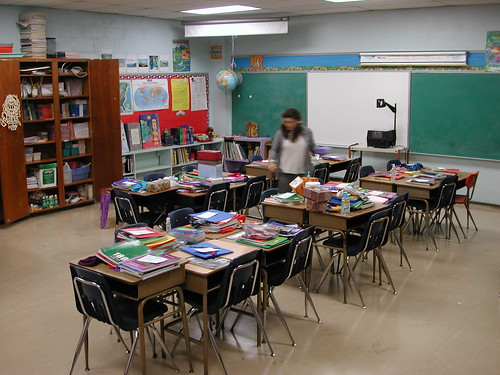The field of education is as diverse as the pupils it serves. Aspiring teachers will find a wide variety of options for specialization in education. Three areas that can be expected to consistently experience high demand for qualified teaching staff are English as a Second Language (ESL), Special Education, and Literacy.

cc licensed flickr photo shared by Editor B
ESL/ESOL
Current projections indicate that 40% of students will qualify for ESL services by the year 2030. Unfortunately, many school systems remain woefully unprepared for this level of service. One demographics survey indicated that between 58% and 82% of teachers have never received professional development in this area, with the highest numbers representing teachers who work in rural communities. This raises concern since a significant portion of the population who qualify for ESL services may reside in rural areas where opportunities for migrant labor are plentiful. In fact, another survey revealed that only 13% of teachers who actively instruct language minority students had recently participated in at least eight hours of ESL training. Current and prospective teachers who are interested in addressing this need can complete appropriate coursework and sit for qualifying exams to add an ESOL (English for Speakers of Other Languages) endorsement to a teaching license. Since Title III of No Child Left Behind requires districts to provide specific instruction to language minority students, districts can be expected to seek qualified professionals in this specialty to meet federal requirements.
Special Education
Another area of growth in education also represents a booming population of students with specific instructional needs. The National Education Association reports that qualification for special education services has risen 30% in the past ten years. Specialized training in special education is appropriate for teachers who plan to teach in resource classrooms or general classrooms since 75% of students who qualify for special education services receive the bulk of instruction in the general classroom. Professionals interested in meeting the needs of this population of learners may choose to enroll in university-level preparatory programs in order to certify as specialists in this field. There is no doubt that demand for qualified professionals will remain high in this specialty since Title I of IDEA sets federal guidelines for special education services. In fact, Individual Education Plans (IEP) that are created by special education teachers and administration are considered legal documents. As need continues to climb in this area, districts will need to hire specialists to ensure federal compliance.
Literacy
A third area of expected growth in education is in the field of literacy. Schools, districts, and legislators have begun to place increased emphasis on research and funding in this specialty. In fact, many schools now employ literacy specialists or reading coaches to guide the implementation of district-wide reading initiatives. These professionals also manage the identification and assessment of low-performing students. The link between literacy and future success is well-documented. In fact, statistics indicate that approximately 67% of students who have not achieved proficiency in reading by the 4th grade will become incarcerated and/or receive federal assistance as adults. Even more disturbing, only 22% of those students will be able to close the gap and become functional readers after leaving the 4th grade. Interested teaching staff can obtain endorsements in reading and literacy in order to meet this need.
As new teachers pursue licensing and experienced instructors seek specialty endorsements to remain abreast of current trends in education, it is almost certain that districts will continue to hire professionals with training and/or endorsements in ESL, special education, and literacy. These specialties represent areas of specific need for schools and, quite possibly, the future of education.
Rosie Benson is a special ed teacher and guest author at TopTeachingColleges.net, a site with tools and resources to help prospective students to evaluate the best teaching colleges
